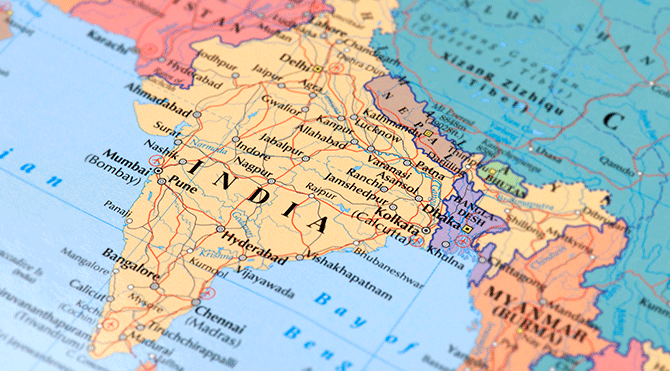Ease of Doing Business in India – a World Bank report
Since Prime Minister Modi's reforms India has jumped from 140th to 77th in the World Bank's 'Ease of doing business index' providing businesses and investors with an improved business environment.

‘Rome was not built in a day’ - India's economic reform
In 2014 started the process of review and improvement for India’s world ranking in the 'Ease of doing business' index. The World Bank measure has identified India as the most improved country in this sphere. In 2014 out of 190 countries India was at a miserly 140th. It made it to the 100th position in 2018 and finally stands at 77 in the Ease of Doing Business 2019 survey.The World Bank index ranks 190 countries on the basis of 10 indicators: starting a business, dealing with construction permits, registering a property, getting credit, getting electricity, trading across borders, resolving insolvency, enforcing contracts, protecting minority investors and paying taxes.A focused approach by the India Government with changes and reforms including: implementation of the Goods and Services Tax (GST) in 2017, an amendment proposed to the Insolvency and Bankruptcy Code (IBC) in 2016, reforms towards 'construction permit', 'starting a business' and 'trading across borders' etc, all of which have brought about change. As per the World Bank report, within South Asia, India has the highest score for protecting minority investors.The focus to improve the ranking is clearly targeted towards increasing foreign investment flow into India thereby increasing the job opportunities within the country and overall prosperity.India implements changes based on World Bank guidance
The following were specifically recognised by the World Bank in various categories:Making it easier to start a business
- Cut or simplified post-registration procedures (tax registration, social security registration, licensing)
- Introduced or improved online procedures
- Hays Skills Index: India
- IKAN Relocation Services: background guide to cities in India
- Ever-growing UK investment in India, report finds
Making it easier to deal with construction permits
- Reduced time for processing permit applications
- Improved or introduced electronic platforms or online services
Strengthening legal rights of borrowers and lenders
- Granted absolute priority to secured creditors or allowed out-of-court enforcement
- Granted exemptions to secured creditors from automatic stay in insolvency proceedings
Strengthening minority investor protections
- Increased disclosure requirements for related-party transactions
- Increased director liability
Making it easier to pay taxes
- Introduced or enhanced electronic systems
- Simplified tax compliance processes or decreased number of tax filings or payments
Making it easier to trade across borders
- Strengthened transport or port infrastructure for exports
- Strengthened transport or port infrastructure facilitated customs
- Administration for exports and importsure for imports
Making it easier to enforce contracts
- Introduced or expanded the electronic case management system
Making it easier to resolve insolvency
- Improved the likelihood of successful reorganization
- Introduced a new restructuring procedure
- Regulated the profession of insolvency administrators
Changing labor legislation
- Reformed legislation regulating worker protection and social benefits
Relocate’s new Global Mobility Toolkit provides free information, practical advice and support for HR, global mobility managers and global teams operating overseas.
 Access hundreds of global services and suppliers in our Online Directory
Access hundreds of global services and suppliers in our Online Directory
©2025 Re:locate magazine, published by Profile Locations, Spray Hill, Hastings Road, Lamberhurst, Kent TN3 8JB. All rights reserved. This publication (or any part thereof) may not be reproduced in any form without the prior written permission of Profile Locations. Profile Locations accepts no liability for the accuracy of the contents or any opinions expressed herein.




































